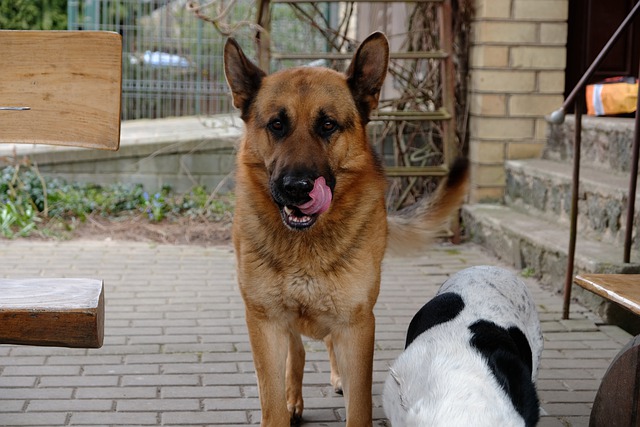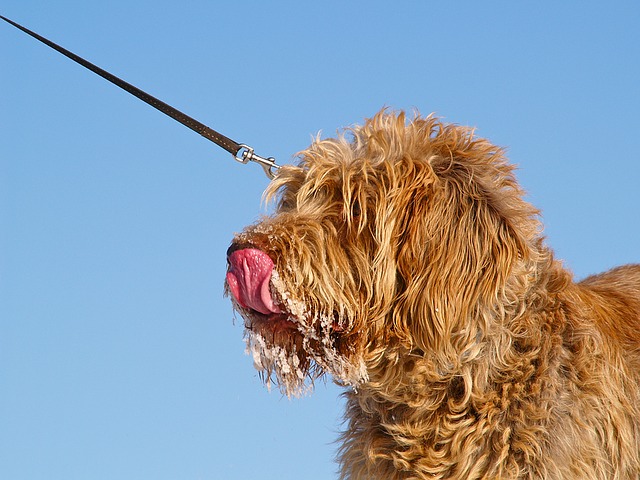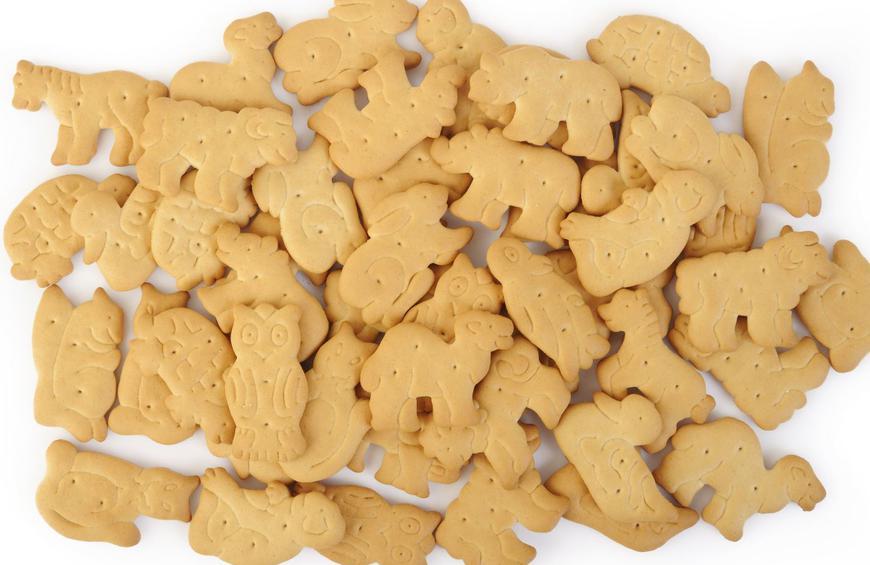If you walk in any household with children today, you are bound to find a jar of animal crackers stashed somewhere in the kitchen or pantry. Children just love these animal-shaped treats and we’d bet you have your own childhood memories of munching them—and for good reasons. These treats are not only fun and scrumptious but most parents stock them to keep everyone happy.
Some people even share them with their dogs. Given that cookies and biscuits are often given to dogs as rewards, some dog parents assume that animal crackers are okay for their dogs too. Is this the case? Are these tasty snacks safe for dogs? We’ll find out shortly but before then…
What Are Animal Crackers Made of?
Animal crackers are basically flat biscuits made of flour, sugar (or corn syrup), water, hydrogenated vegetable oil, baking soda, salt, and lecithin (an emulsifier). Ingredient-wise, they are more like your typical cookies or Nilla wafers. For more information about the ingredients and nutritional facts of these crispy treats, check here.
Can Dogs Eat Animal Crackers?

Technically, animal crackers are not toxic to dogs, so your pup won’t drop dead after gulping down a few of these crackers. However, they may jeopardize the health of your pooch over time, especially if you allow him to consume the treats regularly. So, giving your four-legged friend a cracker or two once in a while isn’t an issue, but you shouldn’t overdo it.
High in Carbohydrates
Animal crackers are made from wheat or all-purpose flour, which have extremely high carbohydrate content. In large quantities, animal crackers could be very dangerous for your dog because a dog’s system cannot handle high levels of carbs. If anything, while dogs do benefit from carbohydrates, their systems don’t need carbs to thrive or maintain a healthy gut profile. What’s more, excess carbs are often converted by a dog’s system to glucose, which may lead to weight gain and diabetes. Excess carbs are also known to cause energy fluctuations, which can make your dog feel exhausted throughout the day.
Sugar
Animal crackers are scrumptious because they contain sugar—a whole packet is believed to contain 14-20 grams of sugar. This is a lot of sugar for your dog. Allowing your dog to consume a lot of sugar may make him suffer from several health issues including weight gain, diabetes, irregular blood sugar levels, and behavioral issues. Like in humans, sugar can also be addictive to dogs.
Another controversial ingredient in animal crackers is high fructose (HFCS) corn syrup. It is one of the biggest culprits in unhealthy foods nowadays. Studies have shown that as the level of HFCS increases, so does the obesity levels. While some people don’t want to agree that HFCS alone is the reason people are obese, one thing is for sure: corn remains the most genetically modified crop in the US. So for your pup’s sake, avoid HFCS!
Salt
Animal crackers contain about 414mg of salt, which is way too high for dogs. Compared to humans, salt tolerance in dogs is very low. So, allowing your dog to consume animal crackers regularly can cause electrolyte imbalance, blood pressure, and hypernatremia among other conditions. Excess salt may also lead to sodium poisoning, which can even cause death in serious cases. While a dog will have to eat large amounts of animal crackers to be at risk of salt poisoning, the risk is still there and should be avoided.
Common symptoms of sodium poisoning in dogs include fever, diarrhea, vomiting, loss of appetite, body tremors, and seizures. So, if your pup has gulped large amounts of animal crackers and you notice any of these symptoms, consider getting him medical attention immediately.
Unsalted animal crackers are not safe either. So, moderation is vital. You should never give a lot of any human food to your dog because you risk exposing him to obesity and other complex health issues.
Other Concerns
- Artificial Flavors and Preservatives: While most brands of animal crackers are touted to be formulated with naturally-derived ingredients to add flavor, this is not the case. The ingredients are basically pumped with chemicals to intensify their flavors. Preservatives are also associated with a plethora of health risks in dogs, including cancer.
- Meager Nutrients: The all-purpose flours used to make animal crackers are often stripped of bran and germ that make them whole or nutritious. Most added vitamins and minerals are also depleted in the processing stages. So, even if you feed your dog with 5 packets of animal crackers, he wouldn’t really get that much valuable nutrients!
- Hydrogenated oils: Some animal crackers also contain partially hydrogenated vegetable oils, which may cause inflammation, cardiovascular diseases, and even cancer in dogs.
- Risks of gastrointestinal obstructions: There are also instances when your dog may eat the packaging of these crackers, causing GI upsets and even obstruction.
My Dog Accidentally Consumed A Lot Of Animal Crackers: What Can I Do?

If your pup has consumed a whole plate of animal crackers, monitor him for a few hours for potential side effects. Animal crackers have a lot of fiber, so expect your dog to be a bit gassy or have an upset stomach.
If a gassy dog is a concern to you, consider putting him outside until excess food is relieved from his system. Meanwhile, make him feel as comfortable as possible while the food is being digested. Avoid giving him food and water for 8-12 hours. Give him a bland diet of rice and chicken after 12 hours or an OTC acid reducer like Pepcid AC.
If the cracker was smeared with dips, talk to your vet right away because some dips may contain spices and flavorings like garlic, onions, and xylitol, which are extremely toxic to dogs. We recommend calling your vet even if the crackers were not smeared with these dips to ensure that your dog has not ingested crackers at a toxic level. A vet will also advise you on how to handle your pup should he develop a reaction.
Finally, consider hiding any remaining packages of animal crackers left in your pantry, and keeping them out of reach of your pup. If you don’t store crackers appropriately, your dog may find them and gulp more than is safe for him, putting him at risk of poisoning.
Healthier Alternatives to Animal Crackers
If your pup is really into the crunchy feel of animal crackers, we recommend buying him dog biscuits and cookies. These are designed with your dog’s nutritional needs in mind, so you won’t have to worry about how they are going to react with your dog’s system. In other words, they will offer your dog a tasty snack without risking his health and overall well-being.
Alternatively, bake him some crackers at home. One of the biggest advantages of homemade crackers is that you can control the ingredients that go into your treats, ensuring that they are as healthy as possible for your pup.
Conclusion
While it may be tempting to throw your pup a few pieces of animal crackers once in a while, they are not the best treat choice for dogs. They are loaded with sugar, carbs, salt, trans fat, artificial flavorings and preservatives, which can be detrimental to your Fido’s health. If you have a choice, therefore, always feed your pup real, natural, unprocessed food. And if you canine buddy is really into animal crackers—perhaps after introducing him to a few—consider getting him doggie snacks or baking some crackers for him at home.
As an Amazon Associate, we may receive a small commission from qualifying purchases but at no extra cost to you. Learn more. Amazon and the Amazon logo are trademarks of Amazon.com, Inc, or its affiliates.

